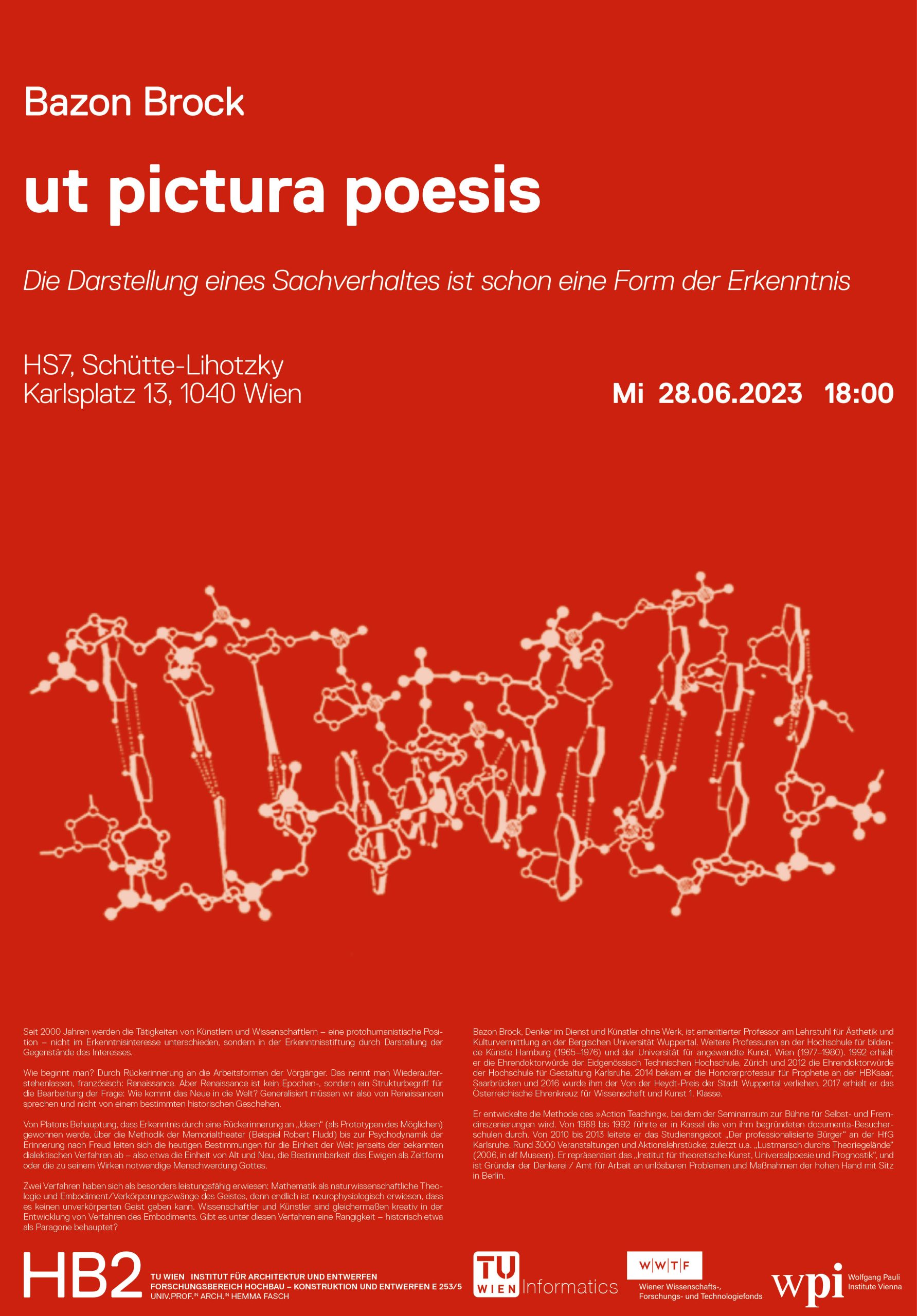ut pictura poesis
The representation of a fact is already a form of cognition
Talk by Bazon Brock
For 2000 years, the activities of artists and scientists – a proto-humanist position – have not been differentiated by their interest in knowledge, but by the creation of knowledge through the representation of the objects of interest.
How does one begin? By recalling the working methods of predecessors. This is called resurrection, in French: Renaissance. But Renaissance is not an epochal term, but a structural term for dealing with the question: How does the new come into the world? Generalised, we must therefore speak of renaissances and not of a specific historical event.
From Plato’s assertion that knowledge is gained through a recollection of “ideas” (as prototypes of the possible), to the methodology of memorial theatre (example Robert Fludd), to the psychodynamics of memory according to Freud, today’s determinations for the unity of the world are derived beyond the known dialectical procedures – for example, the unity of old and new, the determinability of the eternal as a form of time or the incarnation of God necessary for its effect.
//
Bazon Brock, thinker in service and artist without work, is professor emeritus at the Chair of Aesthetics and Cultural Mediation at the University of Wuppertal. He also held professorships at the Hamburg University of Fine Arts (1965-1976) and the University of Applied Arts, Vienna (1977-1980). In 1992 he received an honorary doctorate from the Swiss Federal Institute of Technology in Zurich and in 2012 an honorary doctorate from the Karlsruhe University of Arts and Design. In 2014 he was awarded an honorary professorship for prophecy at the HBKsaar, Saarbrücken and in 2016 he was awarded the Von der Heydt Prize of the City of Wuppertal. In 2017, he received the Austrian Cross of Honour for Science and Art 1st Class.
He developed the method of “Action Teaching”, in which the seminar room becomes a stage for staging oneself and others. From 1968 to 1992, he organised the documenta visitor schools in Kassel, which he founded. From 2010 to 2013, he was head of the “Professionalised Citizen” course at the Karlsruhe University of Arts and Design. He has organised around 3,000 events and educational activities, most recently including “Lustmarsch durchs Theoriegelände” (2006, in eleven museums). He represents the “Institute for Theoretical Art, Universal Poetry and Prognostics”, and is the founder of the Denkerei / Office for Work on Unsolvable Problems and Measures of the High Hand, based in Berlin.
//
Wednesday, 28.06.2023 18h00
HS7 Schütte-Lihotzky
Karlsplatz 13, 1040 Vienna
Event organised by Wolfgang Pauli Institute Vienna and TU Vienna, Research Department E253/5 Building Construction, Construction and Design, and TU Vienna, Faculty of Computer Science
With the kind support of Wolfgang Pauli Institute and WWTF – Vienna Science and Technology Fund
